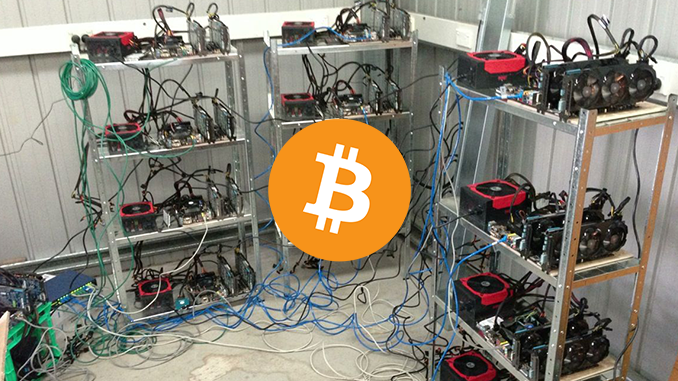
Bitcoin mining, but also the mining of Ethereum (ETH) and other altcoins, is often advertised as an opportunity to generate passive income with little effort. But does the math still add up in 2022?
This week, a small but nice piece of news made the rounds, which whets the appetite for Bitcoin mining. A so-called solo miner surprisingly succeeded in mining a block for the Bitcoin blockchain. For this, there is an automatic reward of 6.25 Bitcoin (BTC) plus the transaction fees for the transfers contained in the block. In one fell swoop, the Bitcoin miner acting on his own raked in the equivalent of around 270,000 US dollars. Who wouldn’t dream of repeating history and becoming a Bitcoin miner themselves?
The story attracted so much attention because mining Bitcoin, Ethereum (ETH) and other cryptocurrencies in general has become a business dominated by mining pools. These pool massive computing capacities to stay ahead in the race to mine the next block and the bonuses that come with it. According to available information, the solo miner has spent just 126 TH/s of computing capacity – which is a mini contribution compared to the hashrate of close to 200 million TH/s across Bitcoin’s entire network. The chance of finding a BTC block with such a small effort is put at 1 in 1.4 million. So the solo miner was a lucky one.
Bitcoin mining – this is how profitability is calculated
Whether mining Bitcoin or Ethereum, there are basically three factors that influence the profit-loss calculation:
1. the current price of BTC, ETH or other coins where mining is possible. These prices determine the sums that miners can expect to earn when new blocks are generated.
2. the purchase and maintenance costs for the hardware used for mining. ASIC miners as specialized hardware quickly cost 10,000 US dollars and more, super-fast graphics cards as an alternative cost 1,000 US dollars and more.
3 The electricity costs for Bitcoin mining are particularly crucial for Germany as a location. The hardware is supposed to run at full load for 24 hours, which consumes a lot of electricity.
Online calculators like NiceHash allow you to easily forecast what profits or losses can be expected from Bitcoin mining based on your individual setup. Feel free to try it out for yourself – or read on a bit more. What we can already say: Mining Bitcoin or Ethereum does not make sense with German electricity prices around 0.30 euros (0.345 US dollars) per kilowatt hour (kW/h).
We have calculated the Bitcoin mining scenario from the German location here as well as Ethereum mining here. The result is clear: With the three fixed values listed, Germany falls through the sieve as a basis for private mining; electricity is simply too expensive in this country. Private Bitcoin miners will always pay for an exotic hobby in Germany unless they get an unlikely lucky shot.
Conclusion: crypto mining in Europe – losses are inevitable
The news of the successful Bitcoin Solo Miner may arouse interest, but a sober calculation from a European perspective does not recommend imitation. On the contrary, even the quite high current price levels of BTC and Ethereum cannot outweigh the high electricity costs in the EU and Germany. With this info, you also understand why professional Bitcoin miners locate in countries where a kilowatt-hour of electricity costs $0.10 or less. However, the majority of online calculators for Bitcoin and Ethereum miners set such low electricity costs as a default and therefore provide misleading results if the parameters are not readjusted. By the way, most of the time the acquisition costs for hardware are also missing from the calculations.
By investing directly in Bitcoin and Co., on the other hand, you secure clear chances of profit. And how you can use crypto assets with other methods than mining to generate passive income, we explain here.
Best place to buy Bitcoin:

Leave a Reply